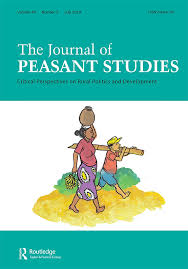Operationalizing payments for ecosystem services for pastoralists in rangeland settings
Payments for ecosystem services (PES) schemes are gaining popularity as an environmental and development policy tool. Spurred by environmental motives, different financial and non-financial incentive schemes are designed to create positive social and environmental impact. Although the experience of PES implementation is relatively significant in the agricultural, forestry and to a certain degree marine sector, the application of PES for pastoralists in rangeland settings is limited.
An evaluation of participatory rangeland management in Ethiopia: Its impact on land security and land use planning, rangeland governance and productivity
Determinants of diarrhoeal morbidity: The case of children under five years of age among agricultural and agro-pastoralist community of southern Ethiopia
Background: Diarrhoea is a leading cause of morbidity and mortality among the under-five children in low-income countries. Despite improvements in water and sanitation coverage, studies show that diarrhoea is still a major public health problem in Ethiopia. This study was designed to determine the magnitude and risk factors of diarrhoea in the agricultural and agro-pastoralist communities of the rural Sidama zone, Southern Ethiopia. Methods: a cross-sectional study was conducted in July 2013. Interview and questionnaire were the main data gathering instruments used in the study.
Climate change and herd management adaptation strategies
Modelling the effects of grazing management on ecosystem services in pastoral systems
Multilevel dialogue and planning for improving rangelands in northern Kenya
Scoping protocol for operationalizing payment for ecosystem services for pastoralist rangelands
‘Civilizing’ the pastoral frontier: land grabbing, dispossession and coercive agrarian development in Ethiopia
This paper analyzes frontier dynamics of land dispossessions in Ethiopia’s pastoral lowland regions. Through a case study of two sedentarization schemes in South Omo Valley, we illustrate how politics of coercive sedentarization are legitimated in the ‘civilizing’ impetus of ‘improvement schemes’ for ‘backward’ pastoralists. We study sedentarization schemes that are implemented to evict pastoralist communities from grazing land to be appropriated by corporate investors.


